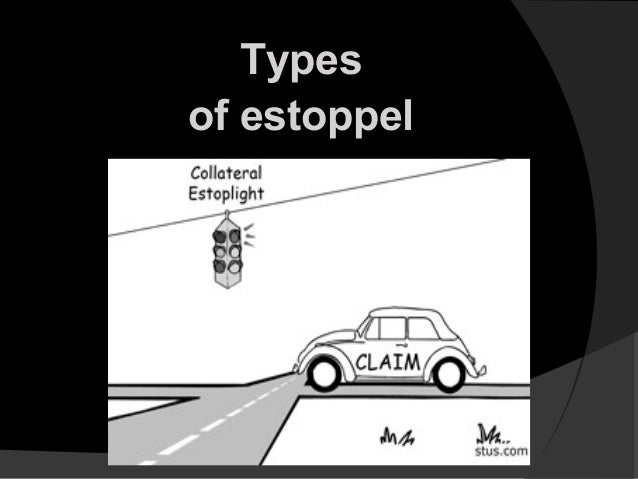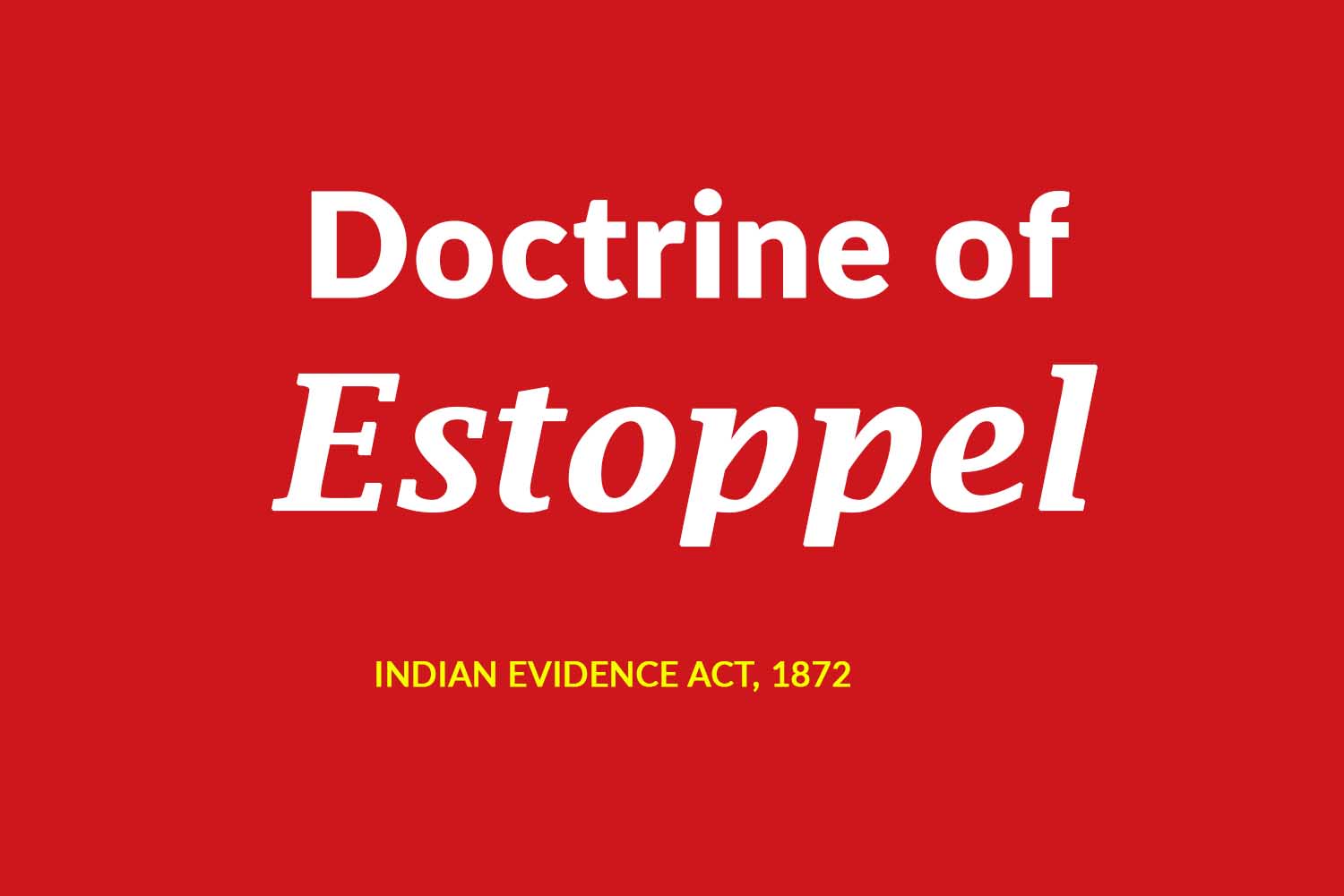What is the plural of estoppel? How do you spell estoppel? The purpose of judicial estoppel is to protect the integrity of the judicial process by barring parties from taking inconsistent factual positions. Reliance-Based Estoppel – involves the reliance of one party on something the other party said or did.

There are five primary types of estoppel relied upon in U. This is also known as “promissory estoppel. Constructive estoppel : This phrase is a really use and it is submitted that it is wrongly used. The adjective constructive is used in cases where the true state of affairs is different from what is construed to be. This phenomenon is usually attributed to increased global competition. Ple of estoppel does not count in such situation but admission has close relevance with estoppel.
It is one of the important procedures, which has vital effect in any court proceedings. Promissory estoppel is a contract law doctrine. It occurs when a party reasonably relies on the promise of another party, and because of the reliance is injured or damaged.

For example, suppose a restaurant agrees to pay a bakery to make pies. It has been judicially noted on more than one occasion that the link between them is often somewhat tenuous. Register and Subscribe now to work with legal documents online. Instant Downloa Mail Paper Copy or Hard Copy Delivery, Start and Order Now!
Estoppel is a legal means of preventing a party from taking action that will negate some previous action taken. Estoppel theories are centered around both common law and equity. The two most common types of estoppel in the U. The basic elements of equitable estoppel , which must be proven by clear and convincing evidence, are: These appear to be the basic elements of judicial estoppel in Virginia.
It also substantially overlaps with, but is distinct from, the equitable doctrine of laches. Estoppel is an equitable (as opposed to common law) construct and its application is therefore discretionary. Some form of legal relationship either exists or is anticipated between the parties.
A contractual relationship is the most common type of “legal” relationship. Parties to pre-contractual negotiations also fall within this principle. A representation or promise by one party. Voluntary conduct may be an action, silence, Acquiescence, or concealment of material facts. The rationale behind estoppel is to prevent injustice owing to inconsistency or fraud.

Both involve a representation made by words or conduct on which a third-party relies and acts to his detriment. Although often complex and difficult to determine, estoppel has the ability to help avoid wasting court resources and to make certain parts of the defense or defense claims against judicial abuse. Mizanul Hoque, PCIU Law School 2. When one person by his declaration , act or omission intentionally caused or permitted another to believe a thing to be true and act. The doctrine of estoppel is a rule of evidence contained in Section 1of the Evidence Act.
The principle of estoppel is in place to protect a person against a loss suffered as a result from a reliance on a promise or representation. This agreement will minimize your risks, especially in this type of situation. Do You Have To Sign An Estoppel ? In some cases, a tenant must sign an Estoppel certificate when a provision in the lease requires them to do so. A tenant is not always required to complete and sign an Estoppel agreement. In this article, we’ll ask and discuss, what is an estoppel certificate, starting with an estoppel certificate definition.

Next, we’ll lay out how estoppel letters work. Also, we’ll provide examples and samples of a tenant estoppel certificate. Certain legal requirements must be fulfilled in order to trigger a promissory estoppel. Of course, at its base, there must be someone making a promise, a promisee, and some type of detriment suffered by the promisee.
Financial obligations owed to an HOA can include past-due debt, monthly maintenance fees, assessments for repairs or special projects, late fees, fines and interest.

No comments:
Post a Comment
Note: Only a member of this blog may post a comment.